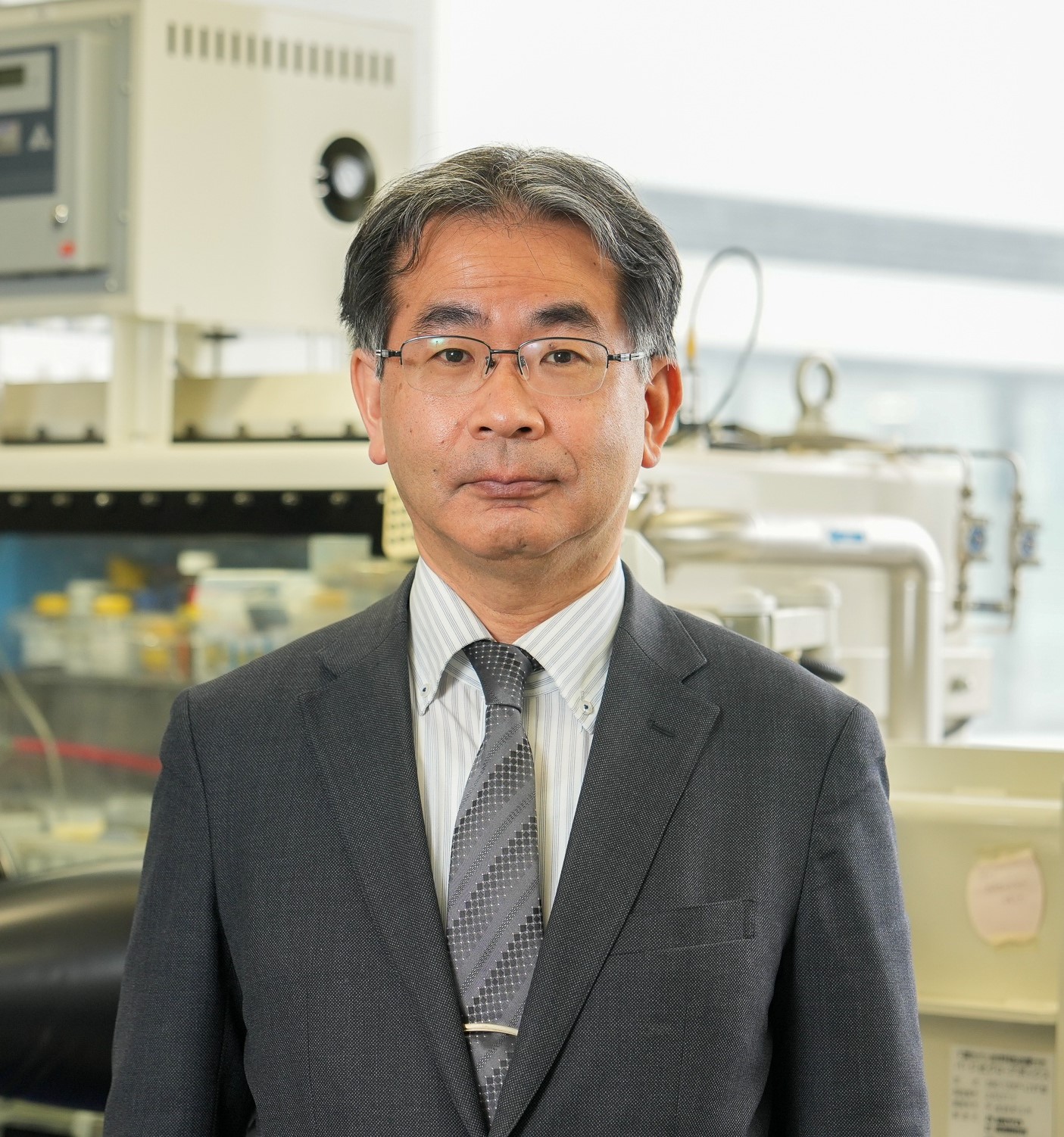TADANAGA Kiyoharu
Dean
Graduate School of Chemical Sciences and Engineering

Chemistry concerns the study of the properties, structure, and changes of atoms, molecules, and their compounds and covers a very wide range of research areas. Chemistry has progressed and developed mainly through accumulating experimental facts and discovering laws among them. However, with quantum mechanics, which describes the motion of atoms and molecules and was established at the beginning of the 20th century as the basis, subsequent advances in computers have led to significant advances in the field of theoretical and computational chemistry. The integration of experimental chemistry with theoretical and computational chemistry is expected to expand research possibilities further.
The Graduate School of Chemical Sciences and Engineering covers a wide range of academic fields, from theoretical and computational chemistry, which explores chemical phenomena at the atomic and molecular level, to fundamental fields such as physical chemistry, inorganic and analytical chemistry, organic chemistry, and biochemistry or molecular biology, as well as applied research to create functional materials such as catalysts, pharmaceuticals, plastics, and ceramics. In this context, the school is engaged in education and research activities while incorporating new concepts and methods that are evolving with the times, such as environmental and energy issues, as represented by various efforts to realize a carbon-neutral society and achieve the Sustainable Development Goals (SDGs) adopted by the United Nations, and areas involved in life and health, as well as data science aimed at chemistry led by artificial intelligence.
The Graduate School of Chemical Sciences and Engineering is the first chemistry-oriented graduate school ever to open in Japan and was established through the fusion of the Department of Chemistry of the Faculty of Science, which considers substances from the perspective of understanding phenomena with emphasizing the fundamentals of chemistry, and the Department of Applied Chemistry of the Faculty of Engineering, which focuses on practical learning and deals with materials from the perspective of designing chemical substances and their reactions with artifacts. In our graduate school, we collaborate on education and research with the Institute for Catalysis, the Research Institute for Electronic Science, the Institute for Genetic Medicine, and the Institute for Chemical Reaction Design and Discovery (ICReDD) at Hokkaido University, and with the National Institute for Materials Science (NIMS), the National Institute of Advanced Industrial Science and Technology (AIST), and RIKEN. With the support of 50 laboratories covering a wide range of chemistry fields categorized into the following three courses, the school offers a curriculum that provides systematic education in each specialized field from both scientific and engineering perspectives.
- Molecular Chemistry and Engineering Course
- Materials Chemistry and Engineering Course
- Biological Chemistry and Engineering Course
– Molecular-level control and analysis of reactions, catalyst development for efficient reactions, development of reaction chains toward related chemical process development and process design
– Development of organic polymers, inorganic materials, metallic materials, nanomaterials and other types of matter with novel functions stemming from a hierarchical assembly of molecules and atoms, and related composite materials
– Artificial control of biological systems based on chemical analysis of the structures and functions of cells and organisms, and the design of medical and medical-related materials with various biological functions
The Graduate School of Chemical Sciences and Engineering actively promotes the internationalization of education through participation in programs such as the Hokkaido Summer Institute and Learning Satellite, which provide Japanese and overseas students with opportunities to jointly attend lectures in English at Hokkaido University or its partner institutions abroad. With the cooperation of the Frontier Chemistry Center and other organizations, the graduate school also promotes the development of students with cross-cultural understanding and international communication skills who can be active on the global stage through various exchange programs with international students, including “short visits,” during which students participate in joint research at overseas laboratories for about two months, “short stays” of hosting graduate students from overseas, and the Chemical Sciences and Engineering (CSE) Summer School, which is planned and drafted by doctoral students themselves.
Based on Hokkaido University’s educational philosophies of Frontier Spirit, All-round Education, Global Perspectives, and Practical Learning, the Graduate School of Chemical Sciences and Engineering strives to nurture the next generation of frontrunners in chemistry and a wide range of related fields of study.
April 1, 2024
